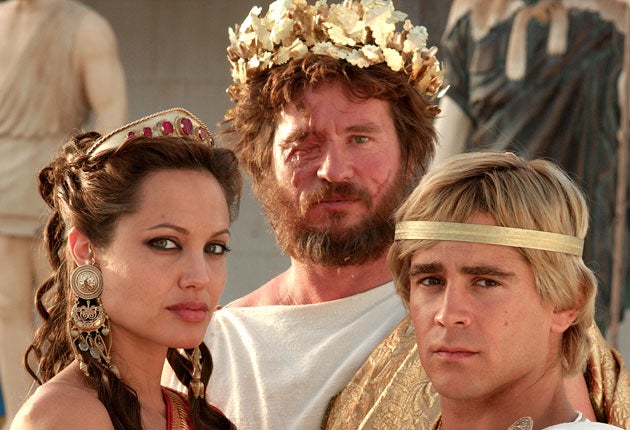Myth of ancient Greece's 'heroes' blown away
Alexander was less than Great, and the Spartans were little more than thugs, says new book

Spartans! Prepare for, well, embarrassment. It seems that far from being elite, noble warriors, each worth 1,000 of any rival soldiers, King Leonidas' crack troops were a bunch of bullying thugs. And Alexander the Great? A mummy's boy: in fact, his mum was a better fighter by a long chalk and died a soldier's death on the battlefield.
They and other figures from antiquity are to have their reputations shattered by a new British study which reveals the "truth" behind long-established legends. Michael Scott, a classicist at Cambridge University, points to evidence that could change the way we think about our classical heroes.
The heroic Spartans of Thermopylae, whose valiant standoff with an enormous Persian army is immortalised in the Hollywood film 300, are unmasked by Dr Scott as little more than war-mongering bullies of the ancient world who policed Athens with near-mindless violence, destroying anything they took a dislike to.
Alexander the Great, remembered for his conquests across the known world and spreading Greek civilisation to the east, is dismissed was a "mummy's boy" whose endless stream of letters from the battlefield to his mother Olympias infuriated his generals.
Despite the fact that Alexander was recently voted the greatest Greek of all time by in a poll in Greece, Dr Scott charges that his successes were merely opportunistic exploitation of foundations laid by his father, Philip II.
Olympias, sympathetically portrayed by Angelina Jolie in the film Alexander, was a violent and fearless warrior to put her son to shame, according to Dr Scott.
It's even suspected that she may have murdered her husband, Philip of Macedon. She was finally captured in battle and put to death in 316BC by Macedonian comrades of those whom she had slain in battle.
The Greek philosopher Isocrates also suffers under scrutiny. Until now he was thought a steadfast believer in democracy in Athens and is widely believed to be one of the greatest orators and political commentators of his time. But, late in life, Isocrates realised democracy no longer worked in Athens and threw in his lot in with Philip of Macedon when Philip became king.
Even the great "Golden City" of Athens itself is not spared a kicking from Dr Scott. He argues that its early successes have, over time, obscured a darker history that mirrors societal problems in 21st-century Britain. Far from being a major world player, fourth-century BC Athens imploded under the weight of a crippling economic downturn, while politicians embroiled themselves in fraud. Meanwhile, they sent the army to fight unpopular foreign wars and struggled to cope with a surge in immigration.
"If history can provide a map of where we have been, a mirror to where we are right now and perhaps even a guide to what we should do next, the story of this period is perfectly suited to do that in our times," Dr Scott said yesterday.
"It shows how an earlier generation of people responded to similar challenges and which strategies succeeded. It is a period of history that we would do well to think about a little more right now – and we ignore it at our peril."
Michael Scott's book From Democrats to Kings is published tomorrow by Icon Books
Join our commenting forum
Join thought-provoking conversations, follow other Independent readers and see their replies
Comments